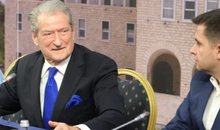
 Flash News
Flash News
Video/ Revolt in Corfu prison, Albanians and Georgians set fire to cells
Accident at "Shkalla e Tujanit" in Tirana, a car overturns after the collision
KPA dismisses Tirana judge Ardiana Bera from office
Don't lose face/ After Rama's 'threat', SP candidates withdraw request from CEC
VIDEO/ The assassination in Durrës, the moment of the murder of 29-year-old Ermir Dedja
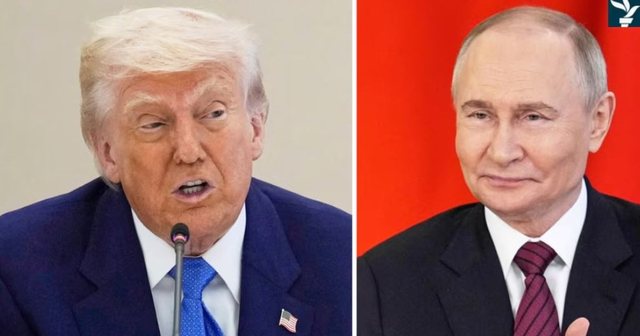
Last month, the president of the United States, Donald Trump, had harsh words for Vladimir Putin, hinting that the Russian leader was taking advantage of the time, or was "procrastinating" when the White House was making efforts to end Moscow's invasion of Ukraine, which is now in its fourth year.
Diplomatic efforts were at their peak; Kiev had accepted an immediate, unconditional ceasefire for 30 days; Moscow does not; Ukraine and Russia continued to hit each other with drones and missiles.
"Vladimir, STOP," Trump wrote on social media on April 24, after a Russian missile attack on Kyiv, which was extremely deadly.
Two days later, after a meeting in the Vatican with Ukraine's Volodymyr Zelensky, Trump wrote of Putin: "It makes me think that, perhaps, he doesn't want to stop the war."
On May 8, Trump threatened Moscow with sanctions if it does not accept the ceasefire proposal.
But, on May 19, Trump and Putin spoke on the phone - for the third time since Trump returned to the White House in January.
For Trump, the conversation that lasted over two hours brought about a surprising change, both in content and tone: there was no longer a demand for Putin to accept an immediate ceasefire. And, the White House was pulling back from efforts to stop the fighting.
"Russia and Ukraine will immediately start talks on a ceasefire and, most importantly, to END the War," Trump wrote on social networks.
"The conditions for this will be negotiated between the parties, as it should be, because only they know the details that no one else knows," he added.
The two leaders addressed each other on name, a senior Kremlin adviser told reporters.
After all, this was what Putin wanted.
"Trump, in essence, blessed Putin's proposal to hold talks based on a framework document on the basis of which peace negotiations would be conducted," said John Hardie, deputy director of the Russia Program at the Foundation for Defense of Democracies.
"If we use Trump's words, Putin is still 'dragging' him, and unfortunately Trump today succumbed to that," Hardie told Radio Free Europe.
"Vladimir Putin has a clear goal: to continue military operations. He is ready to negotiate with Trump on everything except Ukraine," Ivan Preobrazhensky, a Russian political commentator, told Current Time.
"Trump is happy to back down and pretend he did everything he could," he added.
Even before taking office in January, Trump had made ending the war in Ukraine a top priority of his foreign policy. His top emissary, Steve Whitkoff, traveled three times to Moscow to try to reach an agreement.
The lack of progress — despite many meetings and talks — had publicly disappointed Trump and his top advisers, including U.S. Secretary of State Marco Rubio and Vice President J.D. Vance.
There have been warnings that American patience is running out.
Kremlini ka treguar pak gatishmëri për të lëvizur nga pozicionet e tij. Negociatorët rusë dhe ukrainas u takuan në Stamboll javën e kaluar për herë të parë ballë për ballë që nga javët e para të luftës, e cila shpërtheu pasi Rusia nisi pushtimin e plotë në shkurt 2022.
Kishte edhe shpresa që Zelensky dhe Putini të takoheshin, diçka që lideri ukrainas ishte i hapur ta bënte.
Por, Putini mungoi në momentin e fundit. Negociatorët e tij - një delegacion i nivelit të ulët - përsëritën kërkesat maksimaliste të Moskës që ishin në tryezë në vitin 2022, derisa ato bisedime dështuan.
Duke folur për gazetarët pas telefonatës - para se Trump të fliste publikisht - Putini përsëriti fjalët e tij të kamotshme për “shkaqet rrënjësore” të luftës - një term që në thelb nënkupton vënien në dyshim të së drejtës së Ukrainës për të ekzistuar, e për më tepër të gjithë rendit ndërkombëtar pas Luftës së Ftohtë.
“Pozicioni i Rusisë është i qartë. Eliminimi i shkaqeve rrënjësore të kësaj krize është ajo që ka më shumë rëndësi për ne”, tha Putini.
“Nuk ka asnjë tregues se Rusia po ndryshon qëndrim”, tha Stephan Kieninger, hulumtues në American-German Institute.
“Deklarata e Trumpit nuk përmbajnë asnjë shenjë trysnie ndaj Rusisë. Është e qartë se Trumpi nuk është i gatshëm të përballet me Putinin”, i tha ai Radios Evropa e Lirë.
Nëse kjo ndodh vërtet, tërheqja nga përpjekjet për paqe do të përbënte premtim të përmbushur për Trumpin - edhe nëse bëhet në kurriz të Ukrainës.
It would also be consistent with Trump's transactional foreign policy, reflecting a businessman's approach to reaching deals. In his post after the call, Trump included this offer to Moscow: "There is an extraordinary opportunity for Russia to create large amounts of jobs and wealth."
"Donald Trump really wants to make business deals. He really sees business as a way to solve any crisis, absolutely, whether to prevent it or end wars," said Aleksandra Filippenko, an expert based in Lithuania.
That business logic partly prompted Zelensky last month to sign a deal that gives American companies privileged access to Ukraine's valuable mineral resources. The White House had previously made the continuation of the supply of weapons to Kiev conditional on the signing of such an agreement.
Despite the White House's change of position, Zelensky, who spoke separately with Trump before the call, appeared to support the US president's proposal.
"This is a crucial moment," he wrote on Telegram. "Now the world can see if its leaders are really capable of securing a ceasefire and achieving genuine and lasting peace."
Zelensky rejected Trump's proposal to withdraw from the peace talks, demanding that Washington remain engaged because "only Putin is interested in this".
European countries, which support Kiev, are preparing for this moment: the possibility that the White House will try to reach an agreement directly with the Kremlin - leaving either Europe or Ukraine out of the process.
On the eve of the phone call with Putin, Trump spoke about the war with the leaders of Britain, Germany, France and Italy.
Europeans reiterated support for a ceasefire and warned of more sanctions if Russia does not stop the aggression.
"Europeans must react," Kieninger said. "How prepared they are to face Putin with new sanctions without the United States, that remains unclear."
Latest news


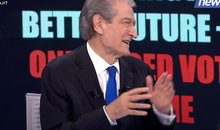
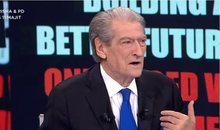
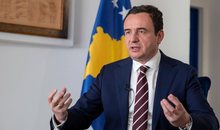

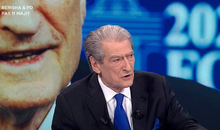
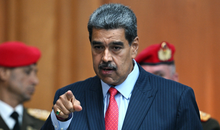
38 people arrested for conspiracy in Venezuela, among them an Albanian
2025-05-20 21:18:15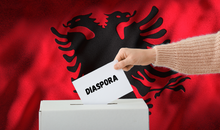
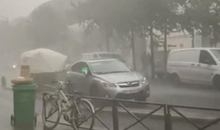
Torrential rainfall hits southeastern France, 3 confirmed victims
2025-05-20 20:49:14
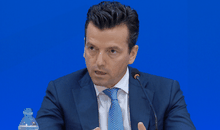
Shehaj: Our votes will never unite with Edi Rama
2025-05-20 20:24:31
The ship "Butrinti" rescues 13 migrants in the Aegean Sea, including 2 children
2025-05-20 20:01:12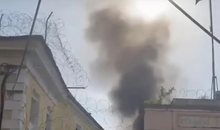
Video/ Revolt in Corfu prison, Albanians and Georgians set fire to cells
2025-05-20 19:51:04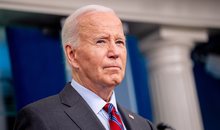
Biden diagnosed with cancer, questions about his health in the White House
2025-05-20 19:37:01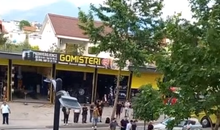
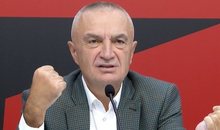

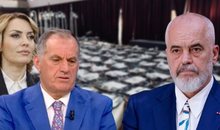
How SP candidates withdrew from vote complaints after Rama's message
2025-05-20 18:34:12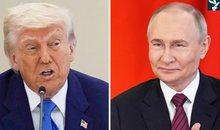
Trump-Putin conversation/ Analysis: Who won in the two-hour call?
2025-05-20 18:15:00
Suspicions of electoral crimes, SPAK checks the municipality of Klos
2025-05-20 18:02:48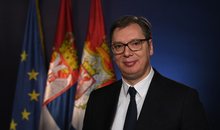
Vucic message to the Serbian coach: Go to Tirana and win against Albania
2025-05-20 17:50:48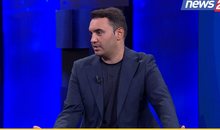
Këlliçi: The diaspora vote is a massacre, the violations are flagrant
2025-05-20 17:39:37
Accused of drug trafficking in Italy, the Supreme Court acquits Kreshnik Farruku
2025-05-20 17:20:53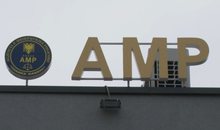
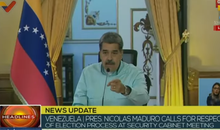
Venezuelan President: Ecuador's Albanian Mafia seeks to sabotage our elections
2025-05-20 17:01:14
Accident at "Shkalla e Tujanit" in Tirana, a car overturns after the collision
2025-05-20 16:51:18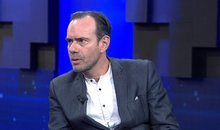
Diaspora vote, Source: Process more symbolic than with real impact
2025-05-20 16:41:12
Why Careful Reporting on Tragic Cases Is Important
2025-05-20 16:17:12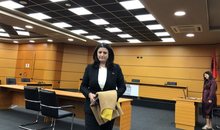
KPA dismisses Tirana judge Ardiana Bera from office
2025-05-20 16:13:30
Even young people with hypertension, 35% of 18-year-olds with blood pressure
2025-05-20 16:01:07
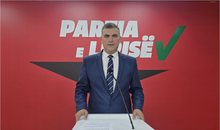
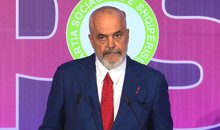
Enigma/ How did the SP grow more than in the previous elections this year?
2025-05-20 15:12:50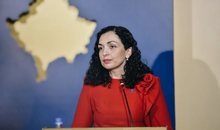
Threat against President Osmani, KMDLNJ: Risk to security and democracy
2025-05-20 15:01:56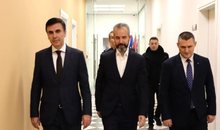
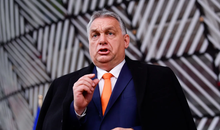
Hungary's parliament approves withdrawal from the International Criminal Court
2025-05-20 14:50:00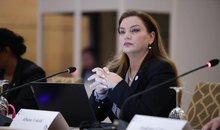
Defamation lawsuit against Albana Vokshi, hearing postponed at the GJKKO
2025-05-20 14:36:20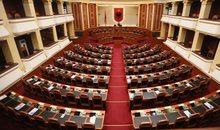
Names/Who are the 140 MPs who will sit in the Assembly?
2025-05-20 14:21:57
Why don't young people want to get married anymore?
2025-05-20 14:15:27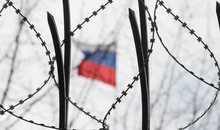
EU approves new sanctions against Russia
2025-05-20 13:49:54
Flax seeds, positive and negative effects of their consumption
2025-05-20 13:45:54

Pope Leo XIV's house goes up for auction for $250,000
2025-05-20 13:23:49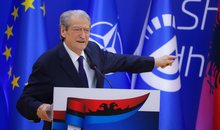
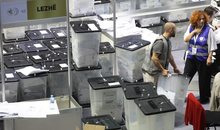
Don't lose face/ After Rama's 'threat', SP candidates withdraw request from CEC
2025-05-20 13:02:09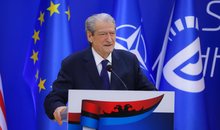
Berisha warns Rama: You will not stay in power with this farce
2025-05-20 12:55:00
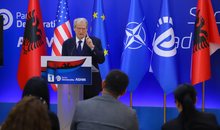


RTSH's official website hacked, fake news about Kosovo appears
2025-05-20 12:10:17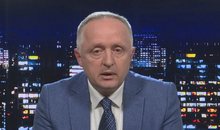

Accident in Korça, motorcycle collides with car, 45-year-old injured
2025-05-20 11:44:48
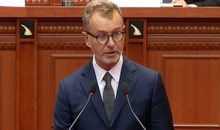

Germany/ 46-year-old Albanian injures three people, including an 11-year-old
2025-05-20 11:12:01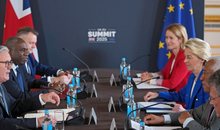
What does the agreement between Britain and the EU contain?
2025-05-20 11:01:38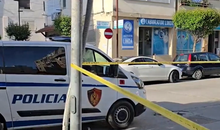
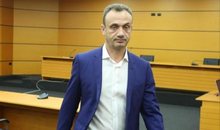

Kosovo bans chicken imports from Brazil
2025-05-20 10:33:45
Makinën plot me d*ogë, vihen në pranga dy persona në aksin “Mamurras-Kashar”
2025-05-20 10:23:33
How does speaking multiple languages change the brain?
2025-05-20 10:15:05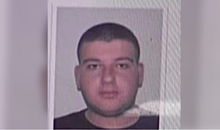
Photo/ This is the 29-year-old who was executed in Durrës
2025-05-20 10:00:39
Foreign exchange/ How much foreign currencies are bought and sold today
2025-05-20 09:51:04
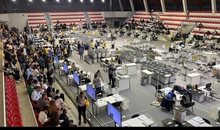



Discover the main signs that indicate your body lacks vitamin D
2025-05-20 09:06:39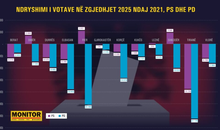
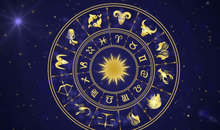
Horoscope, what do the stars have in store for you today?
2025-05-20 08:50:06

He was executed by masked men, who is the 29-year-old who was killed in Durrës?
2025-05-20 08:28:21
Assassinations in Durres, 29-year-old executed
2025-05-20 08:14:59
Clear skies and light clouds, this is the weather forecast for Tuesday
2025-05-20 08:05:40
Posta e mëngjesit/ Me 2 rreshta: Çfarë pati rëndësi dje në Shqipëri
2025-05-20 07:50:55
"We broke a myth", Shabani: The Shehaj-Lapaj debate also harmed us
2025-05-19 22:59:18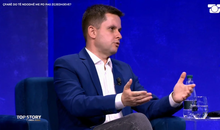
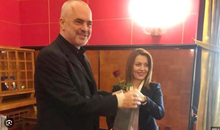
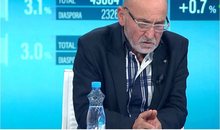

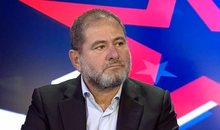
Shkullaku: With the vote of the diaspora, a slaughterhouse has been created
2025-05-19 21:46:19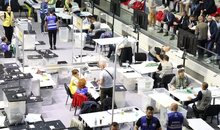
CEC orders recount in 2 polling centers in Elbasan and Durrës
2025-05-19 21:33:47
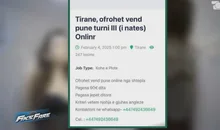
250 euros a night for virtual clients, online prostitution discovered
2025-05-19 21:17:10
Yrshek, 15-year-old hits and kills an elderly man
2025-05-19 21:07:05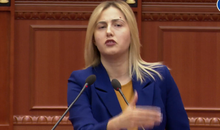

Adoption in Albania: The system that "holds" abandoned children hostage
2025-05-19 20:52:27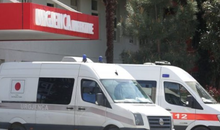
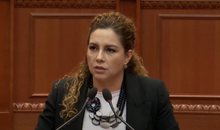
Counting for preferential vote in Tirana ends, Xhaçka receives mandate
2025-05-19 20:23:22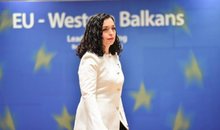
Kosovo President Vjosa Osmani receives death threat
2025-05-19 19:47:49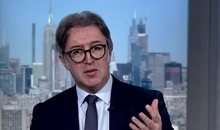
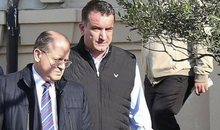
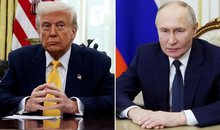
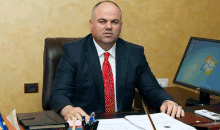
Safet Gjici's release, lawyer: Today the true face of justice was seen
2025-05-19 19:02:46
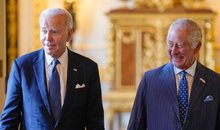
King Charles writes to Biden after being diagnosed with cancer
2025-05-19 18:34:07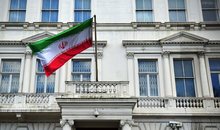
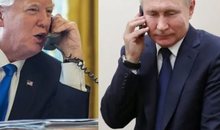
Ceasefire in Ukraine, Trump holds phone conversation with Putin
2025-05-19 18:24:47
